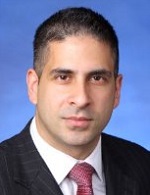Singapore-based ASLAN Pharmaceuticals has signed an understanding with the National Cancer Centre of Singapore (NCCS) to study novel combination therapies to treat gastric cancer, hepatocellular carcinoma and cholangiocarcinoma, in its second move this month to explore wider avenues for its existing clinical trial candidates.
Earlier this month, ASLAN announced plans to work with Taiwan's ACT Genomics on detailed genomic studies of better-than-expected therapeutic responses of candidate ASLAN001 in which one bile duct cancer patient showed 87% tumor shrinkage over a prolonged period of time.
NCCS and ASLAN will work to develop an understanding of preclinical novel combinations of known therapeutic agents, including ASLAN candidates ASLAN001 and ASLAN002, now in clinical development, involving patient-derived cell lines and xenograft models.
In addition, ASLAN and NCCS will work on clinical trials studying novel treatments for cancers prevalent in Asia.
 |
| ASLAN CEO Carl Firth |
"We have a good working relationship with NCCS and the investigators in the clinic," ASLAN CEO Carl Firth said in an interview with FiercePharmaAsia. "So this kind of cooperation is an outgrowth of those relationships and our work with HSA (Singapore's Health Sciences Authority)."
Speaking generally about Singapore's clinical oncology development and last week's announcement of the first-ever clinical trial of a locally invented drug, Firth said strands of government research efforts, money, and investigator work are coming together.
Last week, Singapore's Agency for Science, Technology and Research (A*STAR) and Duke-National University of Singapore Graduate Medical School announced a first Singapore-origin oncology clinical trial on the books, with broad candidate ETC-159.
The Phase I trial will evaluate the safety and tolerability of ETC-159 in advanced solid tumors of up to 58 patients using an inhibitor to pathways known as Wnt signaling.
"There is a growing research side in oncology in Singapore supported by the government, and clinical from principal investigators, with big pharma in the mix," Firth said.
According to a press release, ASLAN and NCCS will host a series of disease symposiums in Asia that will include a dedicated biannual cholangiocarcinoma symposium in Singapore to bring together GI cancer scientists and clinicians to share research and exchange knowledge.
"Our highly-experienced team has a broad understanding of the epidemiological trends specific to cancer in Asia and, leveraging the world-class research capabilities of NCCS, we are well-positioned to accelerate treatment options for patients in the region and globally," Bertil Lindmark, chief scientific officer at ASLAN, said in the press release.
Other companies have eyed Singapore as a research hub for oncology, including Bayer Healthcare, which last week announced plans on translational and clinical research for diseases prevalent in Asia.
Bayer Healthcare already works with SingHealth Duke-NUS Academic Medical Centre and the National University Health System on Asian prevalent cancers through the Integrated Translational Oncology Network that was started in 2013.
The new Bayer Healthcare effort will expand into cardiology and ophthalmology with a potential investment of up to S$30 million from the company and Singapore research entities.
Such research pacts are closely watched by industry to see if they spark smaller biotechs in the city-state. So far the research has not translated easily to spinoff companies in biotech. But Singapore is host to multinationals such as Novartis ($NVS), Amgen ($AMGN) and AbbVie ($ABBV) that announced state-of-the-art manufacturing facilities in the past three years.
- here's the release (PDF)